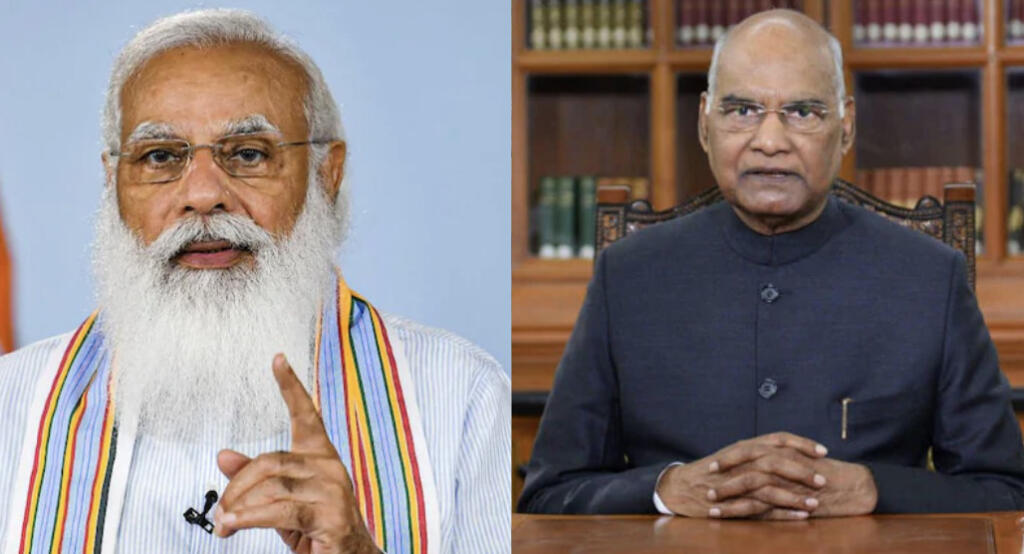- For decades, there is very little enforcement of contracts in India, thanks to the incapacity of the judiciary.
- The Modi government is proposing to bring All India Judicial Services (on the lines of Civil Services) to ensure that judicial vacancies are cleared, and the country could improve its international ranking on “enforcement of contracts”.
- In 2006, the Parliamentary Standing Committee on Personnel, Public Grievances, Law and Justice in its 15th Report backed the idea of a pan-Indian judicial service, and also prepared a draft Bill.
For decades, there is very little enforcement of contracts in India, thanks to the incapacity of the judiciary. Forget High Courts and the Supreme Court of India, the worst condition is that of the Districts and Sessions court, where more than 3 crore cases are pending.
The responsibility to hire judges for the District & Sessions Court lies with the Public Service Commission of states and High Courts, which have done a dismal job so far but are not ready to relinquish the power. These bodies want power without any accountability for the more than 3 crore cases pending in the courts.
Therefore, the Modi government is proposing to bring All India Judicial Services (on the lines of Civil Services) to ensure that judicial vacancies are cleared, and the country could improve its international ranking on “enforcement of contracts”.
Without diluting it to the slightest degree, can a better way be found to select judges for the higher judiciary? For instance, there can be an all-India Judicial Service which can select, nurture and promote the right talent, right from the lower levels to the higher levels. pic.twitter.com/5SJBbFRODU
— President of India (@rashtrapatibhvn) November 27, 2021
In a recent speech to the judges of the Supreme Court, the President of India suggested the idea of All India Judicial Services. “Without diluting it to the slightest degree, can a better way be found to select judges for the higher judiciary? For instance, there can be an all-India Judicial Service which can select, nurture and promote the right talent, right from the lower levels to the higher levels,” said the President of India.
The proposal for an All-India Judicial Service was first suggested in the early 1960s. While the proposal was revived a few times, including in 2012, it could not be implemented due to opposition from some high courts and states.
In 2006, the Parliamentary Standing Committee on Personnel, Public Grievances, Law and Justice in its 15th Report backed the idea of a pan-Indian judicial service, and also prepared a draft Bill.
Due to the inefficiency of the courts, the justice delivery system is very poor in India. The stories of cases taking more than one or two decades to reach a conclusion are very common in the country.
The Economic Survey 2018-19 has a chapter titled ‘Ending Matsyanyaya: How to Ramp up Capacity in the Lower Judiciary’ that draws attention towards an important issue prevalent in the Indian system and that is ‘enforcement of contracts’. The chapter starts with “The Rule of Law and maintenance of order is the science of governance” a quote by Kautilya in his much-celebrated work, Arthashastra.
According to the chapter, in the country, more than 3.5 crore cases are pending in courts. The majority of these cases are in the district and subordinate courts. The chapter further argues that the country is following the law of the jungle or Matsyanyaya (where big fish eats small fish) due to the inefficient court system.
The Ease of Doing Business (EODB) ranking of the country gets hampered due to inefficiency in the ‘enforcement of contracts’. India improved its ranking only by one point to reach 163 in the enforcement of contracts in the latest report while the overall ranking was 77. As per the Economic Survey, this is ironic for a country that has long idealized contract enforcement. As Tulsi Ramayana puts it,“praan jayi par vachan na jayi” i.e., “one’s promise is worth more than one’s life”.
The Survey further states that the majority (87.54 percent) of the cases are pending in district and subordinate courts. More than 64 percent of the total cases are for more than one year and the number of cases (in percentage) pending for more than 10 years is in double digits.
One interesting and much-expected finding is that poorer states have high pendency compared to richer states. The states with the highest pendency are Odisha, Bihar, West Bengal, and Uttar Pradesh. The disposal time, which is measured as the time span between the date of filing and the date when the decision is passed is also higher for poorer states like Bihar, Odisha, and West Bengal.
Read more: PM Modi is preparing a list of projects delayed by Judiciary and NGT, it’s a warning to both
If the Modi government is able to implement this six-decade-old idea by bringing the states and arrogant high court judges on the same page, it would reform as big as Goods and Services Tax. It would spur economic growth and restore the faith of the people in the judicial system and the capacity of the Indian judiciary.
